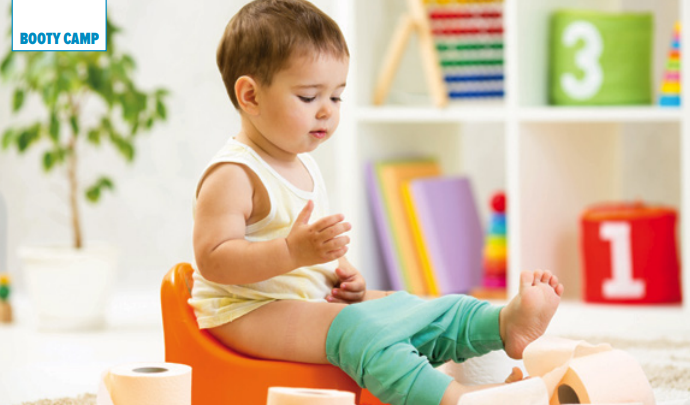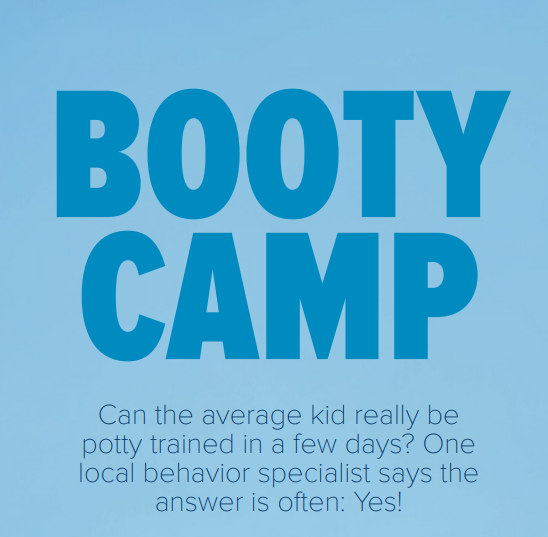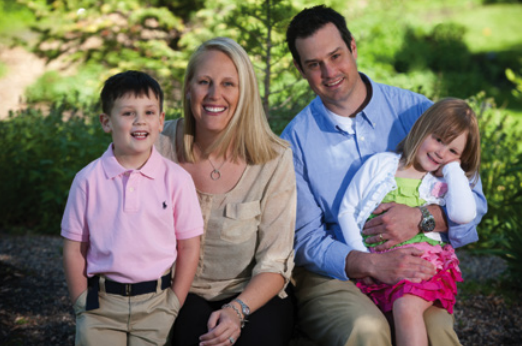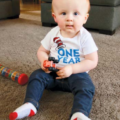You know you’re having a tough time with potty training when an emergency trip to Chicago starts to seem like a good idea.
That was the case for Julie Bixby, a Dellwood mother of two.
Desperate to get her 3 1/2-year-old daughter, Isabella, potty trained, Bixby became intrigued when she read about a woman in the Windy City who guaranteed rapid results.
“I was at my wit’s end,” said Bixby, who had been trying with her husband, Jon, to potty train their daughter for well over a year. “Isabella was going to be starting preschool in the fall, and we’d had 10,000 accidents since starting potty training.”
Not long after that, Bixby saw a flier at a local coffee shop for Behave Your Best’s rapid potty-training service offered in the Twin Cities.
Behave Your Best’s owner, Jamie Waldvogel — a behavior analyst, potty-training expert and mother of two — came to the Bixby home for a consultation.
“Within five minutes, I knew she was our answer,” Bixby said. “Jamie worked her magic, and Isabella started using the potty that first day.”
Though a couple minor relapses occurred, Waldvogel was available to help via text and phone.
“It was the best money I ever spent,” Bixby said. “I wish I had known about Jamie earlier. It would have saved us a lot of headache, tears and laundry in our household.”
The Bixbys knew their daughter was capable of potty training because she would use the potty for the babysitter.
“But for us, she just wouldn’t,” Julie Bixby said. “We (me and my husband) were the problem. Jamie told us it wasn’t about the potty training. It was about the behavior and the attention she was getting from us when she wouldn’t go potty in the potty chair. It was just a repeating cycle/pattern we created.”
Booty Camp:
Can the average kid really be potted trained in a few days?
One local behavior specialists says the answer is often: Yes!
FOCUSING ON BEHAVIOR
So what’s Waldvogel’s secret?
Waldvogel’s Shoreview-based small business, Behave Your Best, helps parents work with their children on potty training, sleep training, tantrums and a variety of other issues using systematic behavior-coaching techniques known as Applied Behavior Analysis or ABA.
“Behavior analysis is not a secret,” said Waldvogel, who’s worked with children, including kids with autism, for more than 15 years. “Behavior analysis is a science, so I rely on my training, experience and science to assess the situation, identify why the child isn’t successfully trained yet, and develop a plan to teach the skill.”
Though ABA is most known for its effectiveness in teaching children with autism and other disabilities, it works well for all children, Waldvogel said.
“Our goal is to reach out to parents of typically developing children, as there are few providers that can help,” she said.
Waldvogel, who also offers workshops that cover potty-training strategies for parents, has successfully trained children from ages 21 months to 6 years old.
Her service costs $800 for two days (up to 10 hours each), plus text or email support after the two-day intensive consultation is complete.
Waldvogel trained her son, Calvin, at about 26 months. She started on a Thursday. By Monday, her son was accident free
and initiating using the potty independently, she said.
“Most families are totally successful within a week, but some take a month to get the child really fluent with the skill in all environments and without reinforcement,” Waldvogel said. “I’ve never yet worked with a child who couldn’t be successfully potty trained.”
GROWING TREND
Parents are increasingly relying on potty professionals around the country.
Earlier this year, the Huffington Post covered the story of Samantha Allen, another behavior expert — and founder of NYC Potty Training —who charges $925 for an eight-hour session and $1,750 for a two-day package.
Allen, nicknamed “The Potty Whisperer” when she worked in preschool classrooms, said a big part of what she does is remove stress from the situation. “The whole family relaxes when I’m there,” she said.
Not everyone is in favor of parents outsourcing the job of potty training.
Marti Erickson — who has a Ph.D. in developmental psychology and, with her daughter Erin, co-hosts Mom Enough, a weekly talk show podcast — said working through the most difficult parts of parenting shouldn’t be delegated to a professional. It’s a growth opportunity for the whole family.
“Sometimes those pain-in-the-neck situations like potty-training challenge parents to find the balance of supporting kids through mistakes and helping them build competence,” Erickson said. “It’s an opportunity for parents to work directly with kids during an important life passage, strengthening their relationship of trust and encouragement.”
Waldvogel said parents who consistently follow her simple plan will be able to potty train their children on their own, without an in-home visit. She encourages parents to first attend one of her workshops for parents (see the sidebar with this story) before signing up for a two-day intervention.
Jon and Julie Bixby of Dellwood pose with their son, Alexander and their daughter, Isabella. Eager to get their daughter, Isabella, potty trained for preschool, the Bixby’s hired a potty-training consultant to get the job done. “It was the best money I ever spent,” Julie Bixby said. Photo by Courtney Conk / CCphotoarts.com
REWARDS AND REINFORCEMENT
During intensive visits, Waldvogel’s behavior-focused method involves keeping a constant focus on potty training for the full two-day period.
She asks that pull-ups be placed out of view before she arrives so the expectation of using the potty is clear.
To ensure the child has plenty of practice time, she offers lots of fluids. And she breaks the process down into manageable teaching components, so the child can start receiving positive reinforcements — rewards tailored to the child — for a small behavior right away.
Waldvogel said parents should be wary of sticker charts that require children to understand complicated reward systems as well as long-delayed gratification.
“The reinforcers are typically tangible things to start,” Waldvogel said. “They are the motivators. Some parents wrap small gifts for the first day. For some kids, we’ve used plastic eggs with a surprise inside, for others a grab bag with fun things, whatever the parents feel will motivate the child.”
These so-called “artificial” motivators are important for young children because social pressures and social motivation aren’t in place for the 2- to 4-year-old set, Waldvogel said, adding: “They do not care if their friends see them wet or smell their soiled clothing like older children do.”
Waldvogel increases expectations gradually throughout the process, until the child is being rewarded only for a complete, desired behavior, not just going through certain steps.
She coaches parents to fade reinforcements gradually as more successes occur.
“Otherwise, the child can revert to old contingencies in an attempt to figure out what the expectation is,” she said. “Nine times out of 10, the plan to remedy unwanted behaviors is to teach the child new skills, as a lack of a specific skill is often the reason why they are engaging in unwanted behaviors at this age.”
She’s also got another ace in the hole: She’s not Mom or Dad.
“As a neutral third party, I have no history parenting this child, no history of resistance or refusal,” she said. “And after 15-plus years of working with children, I’d like to think I’ve got a gift for relating to them and making myself the reinforcer.”
Potty Training TOP TIPS
- Children learn quickest if given ample opportunities to practice a new skill in a short period of time. Increase fluid intake during first day or two of training to increase opportunities to practice.
- Commit to underwear only during awake hours.
- Temporarily use positive reinforcement to encourage positive behaviors. Start with a small goal — sitting calmly on the toilet for two minutes — and gradually increase your expectations with successes.
- Every child is unique, so what worked for a sibling may not work a second time.
Potty-tracking app
You can track potty progress with the Time to Potty app from Huggies. Its main feature is a timer that reminds the family when it’s time for a potty break — and it automatically adjusts based on the training child’s progress. Fun games help you and your child celebrate potty achievements. Learn more at pull-ups.com.
READING FOR THE POTTY
Where’s the Poop?
This lift-the-flap wonder encourages kids to find where all the baby animals have left their poop. It ends in a home, however, where the toilet is the place to go! By Julie Markes
Bear in Underwear
In this quirky, cute, comic-style book, Bear, Beaver, Cougar and Big Foot are playing hide-and-seek with their friends when Bear gets lost and stumbles on an entire backpack of underwear. By the end of the book, each animal has found a perfect fit! Look for many other spin-off books in this series. By Todd H. Doodler
Potty
Always ridiculously cute, Leslie Patricelli’s books for babies and toddlers have become part of the board-book canon. In this one, it becomes clear: Going in one’s diaper is only one possible option, and the question must be raised: “Should I go in my potty?” By Leslie Patricelli
Vegetables in Underwear
This book, coming out in April, might be the most hilarious take on underwear acceptance ever, including broccoli in briefs and baby carrots in diapers. By Jared Chapman
Even Firefighters Go to the Potty
Everyone, everywhere, regardless of what they may do professionally, must take the time to stop and go to the potty. In this lift-the-flap book, readers visit the police station, a construction site, a doctor’s office, a baseball field, the zoo and more to discover again and again that important people use the restroom, even if they’re busy! By Wendy and Naomi Wax
Take a class
What: Behave Your Best offers The Ins & Outs of Potty Training workshops designed to give parents the skills to potty train kids in a matter of days or weeks, not years.
Available online, anytime!
Register: https://behaveyourbest.wpengine.com/online-parenting-classes/
Learn more: See behaveyourbest.com or call 612-224-1051.
Learn more
Behave Your Best also helps children with sleep training, tantrums, eating, listening, homework, aggression and sibling disagreements using systematic behavior-coaching techniques known
as Applied Behavior Analysis or ABA. Learn more at behaveyourbest.com or call 612-224-1051.





















